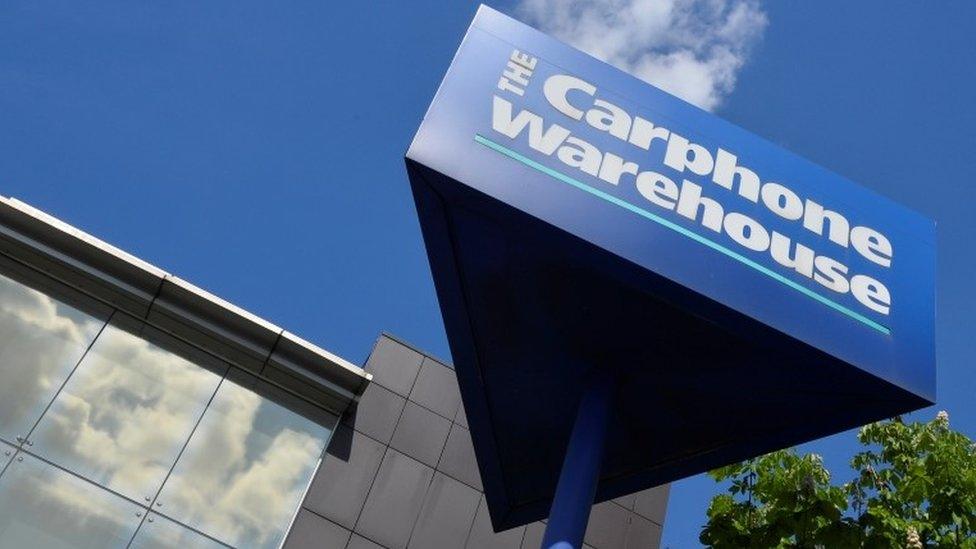Dixons Carphone calls for a strong single market deal
- Published
- comments

Sebastian James, group chief executive of Dixons Carphone, has told the BBC that "we need to do everything in our power to make sure our leaders get us access to the single market".
That, as we know, is a very tall order but Seb James is an optimistic man by nature and that is understandable given his recent track record.
Dixons Carphone is not the snappiest of company names. It sounds like incompatible electrical goods patched together with tape - but it seems to work just fine.
Formed from a merger of Dixons and Carphone Warehouse in 2014, this morning it reported a 17% increase in pre-tax profits to a record £447m.
It also raised its dividend and is pressing on with major store overhauls to bring the Currys, PC World and Carphone Warehouse brands under the same roof.
Carrying on
But what happens now - how does the landscape change? For Dixons Carphone, so far, not at all.
In fact, Seb James told the BBC that sales in the few days since the referendum were higher than they were last year.
He also has no plans to pull any investment but said he would be "keeping our eyes on what's happening".
Mr James has been through a few scrapes before - he paid his workers in Greece from suitcases full of cash during the Greek banking crisis.
The business in Greece increased its market share during that period and is now going "great guns".
Seb James' advice to his teams and to the UK population is "to keep our pecker up" and carry on.
Is this admirable stoicism or optimistic delusion?
His pleas for access to the single market plus some deal very close to the freedom of movement we have now is not what people voted for but it's typical of a view in the business community that some sort of fudge, close to what we currently have, can and will prevail in the end.
Weighing options
One of the UK's largest companies, Vodafone, is not so confident.
The £55bn company warned yesterday that it could relocate its head office outside the UK if the negotiations for a post-Brexit Britain do not give it freedom of movement across the EU for people, capital and goods.
Vodafone employs 13,000 people in the UK but derives just 11% of its revenues from the UK.
The business lobby had its say pre-vote with chief executives signing open letters, memos to staff and heavy lobbying from trade groups all highlighting the risks of leaving the EU.
They were ultimately ignored.
If Seb James and Vodafone get what they want, leave voters may feel they have been ignored as well.